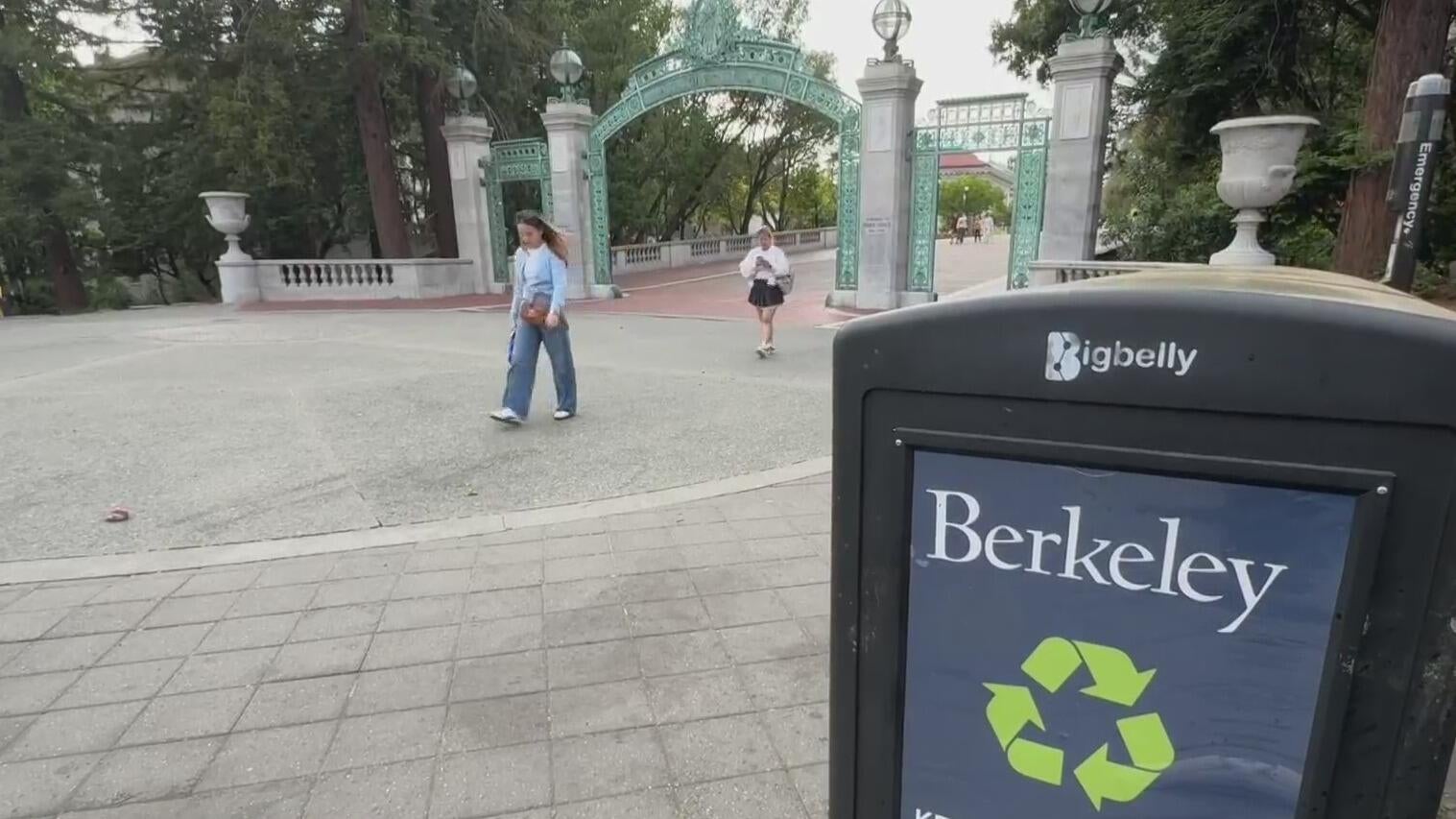University of California researchers face uncertain future over possible federal funding cuts
Thousands of University of California and California State University system workers are unsure about their jobs and the future of their research after reports that President Donald Trump is going after the federal funding for California.
In response, Gov. Gavin Newsom has threatened to stop paying the state's federal taxes.
Tanzil Chowdhury is a graduate student researcher at UC Berkeley with the Materials Science and Engineering Department.
He works on semiconductors and is researching how to create more efficient batteries and better solar panels. His academic future, however, is in limbo.
"I really want to make a difference with the work that I do, I want to help transition off of fossil fuels and create greener and more efficient energy grid for everyone. With these cuts, I don't know if I'll be able to continue doing that," Chowdhury told CBS News Bay Area.
That's because Mr. Trump is considering pulling funding for both the UC and Cal State University systems.
"This would just be catastrophic to my work, the work of all my coworkers and the amazing research that happens here in the state of California at the UC and CSU," he said. "We can't access the materials that we need, we can't get the lab space that we need, we can't run our experiments if there's no money coming in."
A recent report shows the UC system received more than $4 billion for academic research during the 2024 fiscal year. Schools, including UC San Francisco, rely on those grants.
"This is one of the biggest recipients of National Institute of Health's funds, which are some of the funds that the Trump administration is reportedly going to cut," Chowdhury said.
He helps lead UAW Local 4811, a union of 48,000 academic workers in the UC system. Chowdhury said about 15,000 of those academic workers are from UC San Francisco and UC Berkeley.
"It is one of the nation's leaders in biomedical and biological research. So, groundbreaking treatments in cancer, heart disease, diabetes, all that stuff happens right here," he said. "The patient who needs that sort of groundbreaking research to get better, get healthier, that work stops."
One infectious disease doctor and UC San Francisco professor agrees.
"We receive 30% of all NIH funding in this country. And that's not because just that we are a more populous state, but because we have fantastic universities here, really high-level academics," Dr. Monica Gandhi told CBS News Bay Area.
She added that funding cuts will have a dire impact on the patient level.
"It would mean the complete slowing of any progress in biomedical research that is actually fueling American lives, health," she added. "People who are living in California, their health will absolutely be affected. We won't get novel medications, we won't get therapeutics for cancer, for diabetes, for HIV, for infectious diseases."
A 2023 report shows that 354 of 356 drugs approved by the US Food and Drug Administration from 2010 to 2019 had NIH funding.
"It would be disastrous for California to not be able to continue the lifesaving, NIH-funded research that it does," she added.
Meanwhile, Chowdhury hopes that Governor Gavin Newsom can help by rescinding academic budget cuts on the state level.
"He should work with the California legislature to ensure that we have job security, and we're able to continue doing the research that we need to do, and fill in the gaps left behind by the federal government," Chowdhury said.
While the future remains uncertain, the battle for academia continues.
"The administration needs to not do this, because we don't want to mess with American lives and American health," Dr. Gandhi said.
"Maybe we need to re-evaluate how much money we give to the federal government from California taxpayer dollars, because I know what my California taxpayer dollars to go to. I want them to go to life-saving medical research to extend human life," she added.




